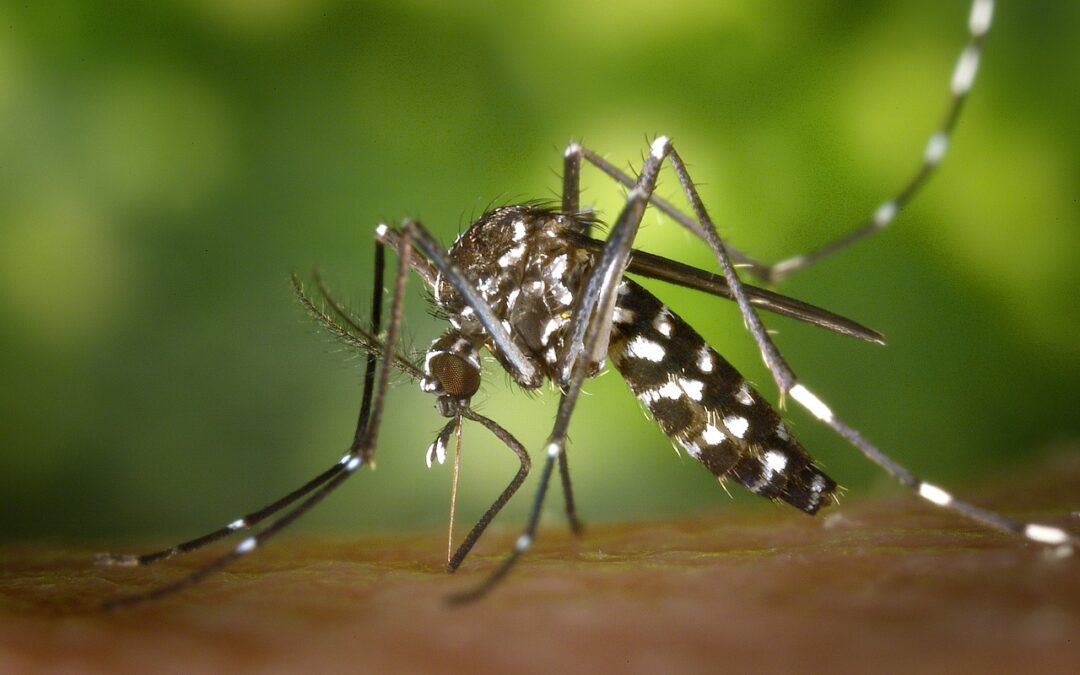As warm weather sets in, so does the inevitable presence of mosquitos. Their high-pitched buzz can be maddening, especially during quiet evenings or when you’re trying to get a good night’s sleep. Their constant presence can make outdoor activities, such as picnics, barbecues or camping, less enjoyable, as you attempt to dodge their bite. Aside from the obvious nuisance of buzzing around and disrupting your peaceful outdoor moments, these tiny pests also pose a significant threat to your health. It’s time to take them seriously, and not only learn about how they can affect your health, but discover eco-friendly ways to get rid of them.
Mosquitos Can Transmit Dangerous Diseases
Beyond their irritating presence, mosquitoes are notorious for transmitting dangerous diseases. Although the North American climate isn’t entirely suitable for mosquitoes carrying the same diseases as African or South American mosquitoes, it’s only a matter of time before the higher temperatures brought on by global warming entices them into our airspace. Some of the most prevalent mosquito-borne illnesses include:
West Nile Virus: Transmitted by infected mosquitoes, this virus can lead to mild flu-like symptoms or, in severe cases, neuroinvasive diseases. This virus has had outbreaks in North America as well as overseas.
Malaria: A life-threatening disease caused by parasites transmitted through the bite of infected female mosquitoes.
Dengue Fever: Caused by the dengue virus, transmitted primarily by Aedes mosquitoes, this disease can lead to severe flu-like symptoms and other health complications.
Zika Virus: Pregnant women are particularly at risk as the Zika virus can cause severe birth defects and neurological disorders in infants.
Their Bites Can Cause Allergic Reactions
When a mosquito bites you they draw out blood, while injecting some of their saliva. Their saliva has anticoagulant and proteins in it, which can trigger histamine production. Histamine helps whites blood cells get to the affected areas, which for some people can trigger allergic reactions. Symptoms may include redness, swelling, itching, and even hives. In severe cases, anaphylaxis can occur, requiring immediate medical attention.
They Present a Risk to Vulnerable Populations
Certain populations, such as the elderly, young children, and individuals with weakened immune systems, are more susceptible to the health risks posed by mosquito-borne diseases. Taking preventive measures is crucial to safeguarding their well-being.
Heartworm in Pets
Humans aren’t the only ones affected by mosquitoes. Our beloved pets are also at risk, as mosquitoes can transmit heartworm larvae to dogs and cats through their bites. Once infected, pets may develop severe heart and lung diseases, which can be fatal if left untreated. This creates the need for pet owners to take preventative measures with overly expensive immunizations.
Eco-Friendly Mosquito Control Solutions
To protect ourselves and our loved ones from the health risks associated with mosquitoes, employing eco-friendly mosquito control solutions is vital. Here are some practical ways to reduce the mosquito population in your outdoor space:
Eliminate their breeding grounds: Mosquitoes breed in stagnant water, so regularly empty and clean water containers, gutters, and bird baths.
Use mosquito repellents: Apply EPA-approved mosquito repellents containing DEET, picaridin, or oil of lemon eucalyptus to exposed skin and clothing.
Install screens: Fit windows and doors with screens to prevent mosquitoes from entering your living spaces.
Add natural deterrents to your space: Using citronella candles or essential oils such as lavender and lemongrass, offer mosquito-repelling properties.
Seek professional pest control: Consider enlisting the expertise of eco-friendly pest control services that use natural, non-toxic methods to control mosquito populations.



